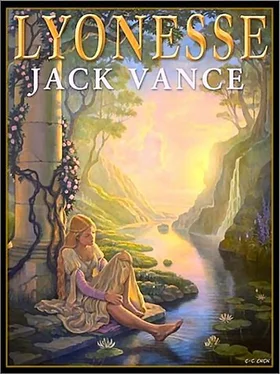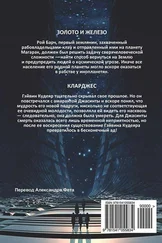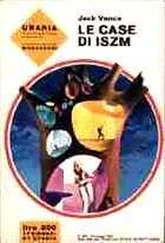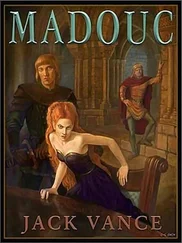Jack Vance - Lyonesse
Здесь есть возможность читать онлайн «Jack Vance - Lyonesse» весь текст электронной книги совершенно бесплатно (целиком полную версию без сокращений). В некоторых случаях можно слушать аудио, скачать через торрент в формате fb2 и присутствует краткое содержание. Жанр: Фантастика и фэнтези, на английском языке. Описание произведения, (предисловие) а так же отзывы посетителей доступны на портале библиотеки ЛибКат.
- Название:Lyonesse
- Автор:
- Жанр:
- Год:неизвестен
- ISBN:нет данных
- Рейтинг книги:4 / 5. Голосов: 1
-
Избранное:Добавить в избранное
- Отзывы:
-
Ваша оценка:
- 80
- 1
- 2
- 3
- 4
- 5
Lyonesse: краткое содержание, описание и аннотация
Предлагаем к чтению аннотацию, описание, краткое содержание или предисловие (зависит от того, что написал сам автор книги «Lyonesse»). Если вы не нашли необходимую информацию о книге — напишите в комментариях, мы постараемся отыскать её.
Lyonesse — читать онлайн бесплатно полную книгу (весь текст) целиком
Ниже представлен текст книги, разбитый по страницам. Система сохранения места последней прочитанной страницы, позволяет с удобством читать онлайн бесплатно книгу «Lyonesse», без необходимости каждый раз заново искать на чём Вы остановились. Поставьте закладку, и сможете в любой момент перейти на страницу, на которой закончили чтение.
Интервал:
Закладка:
The pavanne ended, and the company removed to the Clod an Dach Nair, and found their places at the banquet table. The most rigid rules of precedence applied; the chief herald and an ordinator had worked with enormous pains, making the most subtle of discriminations. Suldrun was seated directly to the right of King Casmir, in that chair usually occupied by the queen. Tonight Queen Sollace was unwell, and lay in her bed, where she ate to repletion of sweet curd tarts, while Suldrun for the first time dined at the same table with her father the king.
Three months after the birth of Prince Cassander, the circumstances of Suldrun's life altered. Ehirme, already mother to a pair of sons, gave birth to twins. Her sister, who had managed the household while Ehirme was at the palace, married a fisherman, and Ehirme could no longer serve Suldrun.
Almost coincidentally, Dame Boudetta announced that by the wishes of King Casmir, Suldrun must be schooled in deportment, dancing, and all other skills and graces appropriate to a royal princess.
Suldrun resigned herself to the program, which was rendered by various ladies of the court. As before, Suldrun used the soporific hours of early afternoon to wander quietly abroad: out into the orangery, or the library, or the Hall of Honors. From the orangery the way led along an arcade, up to Zoltra's Wall, through a vaulted tunnel and out upon the Urquial. Suldrun ventured so far as the tunnel, and stood in the shadows watching the men-at-arms as they drilled with pikes and swords. They made a gallant spectacle, thought Suldrun, stamping, shouting, lunging forward, falling back... To the right a crumbling wall flanked the Urquial. Almost hidden behind a sprawling old larch a heavy wooden door, dessicated with age, led through the wall. Suldrun slipped from the tunnel and into the shadows behind the larch. She peered through a crack in the door, then pulled at a bolt which held the warped timbers in place. She exerted all her strength, to no avail. She found a rock and used it as a hammer. The rivets parted; the bolt sagged aside. Suldrun pushed; the door creaked and shuddered. She turned around and bumped it with her round little buttocks. The door protested with an almost human voice, and moved ajar.
Suldrun squeezed through the gap and found herself at the head of a ravine which seemed to descend all the way to the sea. Greatly daring, she ventured a few steps down an old path. She stopped to listen... no sound. She was alone. She went another fifty feet and came upon a small structure of weathered stone, now desolate and empty: apparently an ancient fane.
Suldrun dared go no farther; she would be missed and Dame Boudetta would scold her. She craned her neck to look down the ravine and glimpsed the foliage of trees. Reluctantly she turned and went back the way she had come.
An autumn storm brought four days of rain and mist to Lyonesse Town, and Suldrun was pent within Haidion. On the fifth day the clouds broke, and shafts of sunlight struck down through the rents at various angles. By noon the sky was half blue space, half hurrying cloud-wrack.
At first opportunity Suldrun ran up the arcade, through the tunnel under Zoltra's Wall; then, after a precautionary glance around the Urquial, under the larch and through the old wooden door. She closed the door behind her and stood tingling with a sense of isolation from all the rest of the world.
She descended the old path to the fane: an octagonal stone structure perched on a stone shelf, with the ridge rising steeply behind. Suldrun looked through the low arched door. Four long steps would take her to the back wall, where the symbol of Mithra overlooked a low stone altar. To each side a narrow window admitted light; slate tiles covered the roof. A drift of dead leaves had blown through the doorway; otherwise the fane was empty. The atmosphere carried a dank clammy-sweet odor, faint but unpleasant. Suldrun twitched her nose and backed away.
The ravine descended steeply; the ridges to either side assumed the semblance of low irregular cliffs. The path angled this way and that: through stones, clumps of wild thyme, asphodel and thistles and out upon a terrace where the soil lay deep. Two massive oaks, almost filling the ravine, stood sentinel over the ancient garden below, and Suldrun felt like an explorer discovering a new land.
To the left the cliff rose high. An irregular copse of yew, laurel, hornbeam and myrtle shaded an undergrowth of shrubs and flowers: violets, ferns, harebells, forget-me-nots, anemones; banks of heliotrope scented the air. On the right hand the cliff, almost equally tall, trapped sunlight. Below grew rosemary, asphodel, foxglove, wild geranium, lemon verbena; slim black-green cypress and a dozen enormous olive trees, gnarled, twisted, the fresh gray-green foliage in contrast with the age-worn trunks.
Where the ravine widened Suldrun came upon the ruins of a Roman villa. Nothing remained but a cracked marble floor, a half-toppled colonnade, a tumble of marble blocks among weeds and thistles. At the edge of the terrace grew a single old lime tree with a heavy trunk and sprawling boughs. Below, the path led down to a narrow beach of shingle, curving between a pair of capes where the cliffs on either hand thrust into the sea.
The wind had eased to a near-calm, but swells from the storm continued to bend around the headlands and break upon the shingle. For a time Suldrun watched the sunlight sparkling on the sea, then turned and looked back up the ravine. The old garden doubtless was enchanted, she thought, with a magic evidently benign; she felt only peace. The trees basked in the sunlight and paid her no heed. The flowers all loved her, except the proud asphodel, which loved only itself. Melancholy memories stirred among the ruins, but they were insubstantial, less than wisps, and they had no voices.
The sun moved across the sky; Suldrun reluctantly turned to go. She would be missed if she stayed longer. Up through the garden she went, out the old door and back down the arcade to Haidion.
Chapter 3
SULDRUN AWOKE TO A COLD GRAY ROOM and a dismal wet light from outside her windows: the rains had returned and the chambermaid had neglected to build up the fires. Suldrun waited a few minutes, then resignedly slid from her bed and with shanks shivering to the chill, dressed herself and combed out her hair.
The maid at last appeared, and hurriedly built the fires, fearful lest Suldrun might denounce her to Dame Boudetta, but the lapse had already slipped from Suldrun's mind.
She went to stand by the window. Rain blurred the panorama; the harbor was a rain-puddle; the tiled roofs of the town were ten thousand shapes in many tones of gray. Where had the color gone? Color! What peculiar stuff! It glowed in the sunlight, but in the dimness of rain it faded: most peculiar. Suldrun's breakfast arrived and as she ate she pondered the paradoxes of color. Red and blue, green and purple, yellow and orange, brown and black: each with its character and special quality, yet impalpable...
Suldrun went down to the library for her lessons. Her tutor was now Master Jaimes, archivist, scholar, and librarian to the ‘ court of King Casmir. Suldrun had at first found him a daunting figure of severity and precision, for he was tall and thin, and a great thin beak of a nose gave him the look of a predatory bird. Master Jaimes was a few years past the first wild urgencies of youth, but not yet old nor even middle-aged. His coarse black hair was cut level with his mid-forehead clear around the scalp, to hang in a shelf over his ears; his skin was parchment pale; his arms and legs were long and as gaunt as his torso; nevertheless he carried himself with dignity and even an odd ungainly grace. He was sixth son to Sir Crinsey of Hredec, an estate comprising thirty acres of stony hillside, and had gained nothing from his father but gentle birth. He resolved to teach Princess Suldrun with dispassionate formality, but Suldrun quickly learned how to charm and befuddle him. He fell hopelessly in love with her, though he pretended that the emotion was no more than easy tolerance. Suldrun who was perceptive when she put her mind to it, saw through his attempts at airy detachment and took charge of the learning process, as when Master Jaimes frowned at her writing and said: "These A's and G's look quite alike. We must do them all over, in a careful hand."
Читать дальшеИнтервал:
Закладка:
Похожие книги на «Lyonesse»
Представляем Вашему вниманию похожие книги на «Lyonesse» списком для выбора. Мы отобрали схожую по названию и смыслу литературу в надежде предоставить читателям больше вариантов отыскать новые, интересные, ещё непрочитанные произведения.
Обсуждение, отзывы о книге «Lyonesse» и просто собственные мнения читателей. Оставьте ваши комментарии, напишите, что Вы думаете о произведении, его смысле или главных героях. Укажите что конкретно понравилось, а что нет, и почему Вы так считаете.










